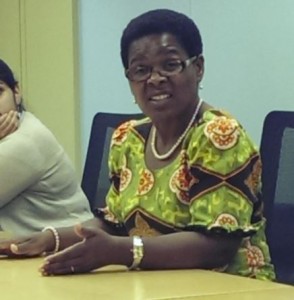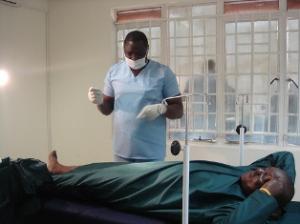When the Malawi Health Equity Network was formed in 2000, the health sector in that country was on the brink of collapse because of the HIV/AIDS epidemic. Brain drain had caused a serious shortage of health care workers, and those who couldn’t afford to leave also couldn’t afford an education.
To deal with this crisis, Malawi Health Equity Network leader Martha Kwataine said at a meeting sponsored by the Frontline Health Workers Coalition last week, a group of organizations and concerned individuals formed an alliance to promote equitable health access for Malawians. Since then, the Malawi Health Equity Network has successfully advocated for ensuring under-served populations with quality health care.
One of their most successful campaigns involved advocating to the government to provide scholarships to medical school students and other health care workers, doubling the number of people entering school in 2011, Kwataine said. “With a scholarship, students pay $100, without a scholarship, they have to pay $1000,” she said.
With a focus on financing, they’ve also worked to increase wages and better working conditions for health care workers so trained professionals have incentive to stay in Malawi instead of seeking higher wages elsewhere. Today, every district hospital, once lucky to have one doctor, now has at least three doctors, she said.
When asked about the most effective way to engage with parliamentarians and ministers, Kwataine said they use government reports to advocate to government officials, citing government data on the lack of healthcare infrastructure to influence legislators to contribute more to domestic health.
Today the network focuses on country-ownership and building up local healthcare systems while promoting accountability, and also works to empower health care workers on their rights, Kwaitaine said.




